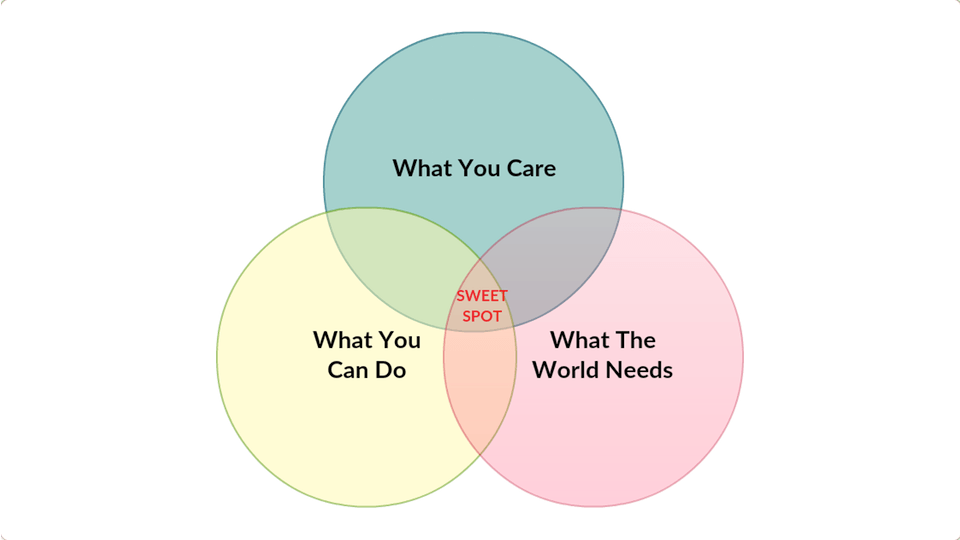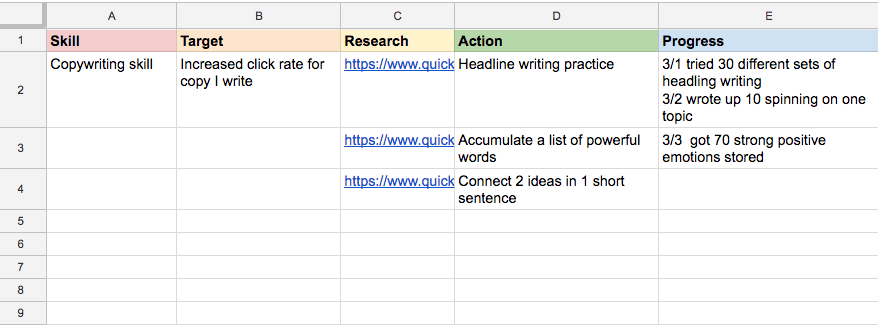Reality is not as simple as we want it to be. It takes more than just passion to succeed in anything. Disney’s words echo with what I’ve recently read – an article written by Stephen Guise that talks about why you don’t need passion to succeed. Instead of needing passion to succeed, he says that you need to care about succeeding in what you want to do.[1]
Passion is just emotion; care is an action.
Wishing hard and wanting something really badly won’t give you anything. Passion (NOUN) – “strong or barely controllable emotion.” Care (VERB) – “Feel concern or interest; attach importance to something.” Passion is a “barely controllable emotion”, and emotions’ not always reliable. Care is different, it implies actions. In today’s world where people always talk about finding your passion, it still seems vague to many. On the other hand, if you’re asked to find something you care about, it’s easier for you to name it. You can choose to care anything at any time. When you care about something, you see that thing as really important to you and you’ll do what you can to protect it. I know some of you may then say, “But Steve Jobs said people with passion can change the world and he really did change the world with his Apple products!” Steve Jobs is undeniably a passionate entrepreneur, and he’s passionate about making an impact on this world. But he also had his down times when that passionate emotion would fade. What’s left in Steve Jobs when the passion’s not there suddenly? There’s definitely a lot more than passion in him.
Like it ≠ Good at it
There’s a lot of work to do besides being passionate. For example, you can be passionate about painting, but if you don’t have any art sense and painting skills, you can hardly become an expert in painting. To become an expert, you need to be always learning and improving your skills. The perception that you’ll do it well anyway when you like it is just an illusion. Let’s say, I like eating and I eat quite a lot; that doesn’t mean I can just become a food guru and know how to analyze the quality of food and write good reviews for restaurants and dishes. To know how to rate foods, I have to learn the basic of what makes up good quality of food. I need to study the nature of different kinds of food like seafood, meat and vegetables etc. and understand the different types of cooking methods. I also have to learn the word usage and tone when writing a review for public to read. Becoming an expert is one thing, becoming successful is another thing. To succeed, you need a pinch of luck too besides working hard.
What you do gotta be able to connect with what the world needs.
To be successful in anything, you need to get to the overlapped sweet spot of the three aspects: what you care, what you can do and what the world needs (where a bit of luck maybe needed).
Don’t get turned off, luck doesn’t play everything here! When you do enough research to understand what the world needs and try to think about how you can utilize your strengths, you will meet that sweet spot. Making the seem-to-be uncontrollable factor controllable is definitely possible. Now you understand that merely passion is not enough to lead you to success, what to do next?
Make what you care a Focus Foundation.
After you’ve figured out what you care about most, make that your focus foundation.[2] Being passionate about something can be a kind of motivation to make things easier because it helps you focus on what you want and care about most. When you’re clear about the very thing you want, you know what things are actually distractions that stop you from reaching your goal.
Learn not just what you care about, but what’s around that too.
When you’ve got your focus, try to map out the skills you need to get better at that. Steve Jobs loved design so much that he took a calligraphy class just for the fun of it. He believed that the dots would connect in the future, all he did was to follow his heart to learn and let himself exposed to all the related stuff he was interested in. To kickstart mapping out the skills you need, try to get yourself a skill chart. This is suggested in Jon Westenberg’s framework to keep track of your skills learning progress after finding what you want to do.[3] It’s easy, you just have to create a table with these columns:
A column that lists the skills you have to learn A column for Research A column for Action A column for Progress
I changed the table a bit by adding one more column called “Target” to make the objective even clearer to me:
Research and write down the things you need to do in the “Action” column and estimate how far you are from taking up the skill in the “Progress” column. When you have the learning plan ready, apply that course you need, get yourself the tools required and kickstart learning and practicing.
Aspire to make a difference in the world with your strengths.
When you’ve become really good at what you care about, you can start to think about the connection between your strengths and the world’s needs. You’re good at something and you need the world to know. The best way to do that is to find out what the world wants and needs most at the moment and connect that with your strengths. Steve Jobs thought the world needed some different technology to make life easier. Technology used to be so inconvenient, everything was too big to carry around. So he created ipod-nano, ipod touch and ipad.
Success is way to go, but you can start right now.
Passion alone doesn’t guarantee success. But if you’ve already got your passion, that’s good enough to make that your foundation and motivation to keep moving. Start mapping out the skills you need and take actions. Instead of passively letting your passion wander around, be proactive and do something that will push you forward.

